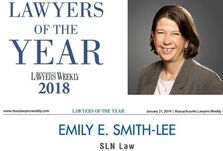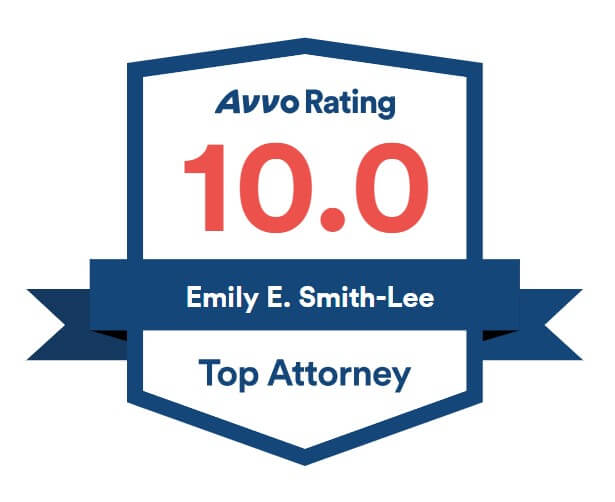Understanding a Mediation Provision Before You Sign
You may be presented with a business or employment agreement that includes a mediation provision. Below are the things you should consider before signing a contract that requires mediation procedures.
What is Mediation?
|
Mediation is a form of alternative dispute resolution. Generally it is a voluntary process, but if you sign a contract with a mediation clause, you may be binding yourself to engage in the process before going to court to get relief under the contract. Read more about what mediation is and how it works.
Is the Mediation Provision Enforceable?Generally anything you agree to in a contract is enforceable unless it is against law or publicly policy. That means if you agree to participate in mediation that is most likely a binding promise.
You can't, however, be forced to accept a settlement you do not agree to in mediation. If the parties agree to a mediation process in the contract, you should be prepared to participate and attempt to settle the dispute in good faith. Understanding the Mediation Provision in Your ContractAn agreement to mediate in a contract can take many forms.
Sometimes it is as simple as a statement that the parties will attempt to mediate before bringing a lawsuit if disputes arise. In that case you may or may not be required to engage in a formal mediation process, and it may be enough to attempt informal negotiations directly between the parties or through your lawyers. The contract may be more specific, and explicitly require submitting the dispute to a mediator. If the agreement does not say anything else, the parties generally will have to agree on a qualified mediator and engage in the process more formally. Sometimes the contract actually identifies a mediation service that must be used. In that case, you will have to engage that service. Occasionally a contract will have both a mediation clause and an arbitration clause. This typically involves a two-step process beginning with mediation and then moving to binding arbitration. Often these provisions include some very specific time limits that you should pay attention to. There are also separate and important considerations in deciding whether to agree to arbitrate. Things to Consider When Agreeing to MediationHere is what you need to know to decide if a mediation provision is the right choice for your business:
Beware of Boilerplate Dispute Resolution ProvisionsMost business contracts you can download from the internet contain some kind of alternative dispute resolution procedure. These are often incomplete, inconsistent and/or ambiguous. They are never tailored to the unique needs of your business and specifics of the agreement you are trying to document.
The best practice is to have a business lawyer draft an agreement that is tailored to your needs in the first place. If that is not feasible for whatever reason, you should at least have a lawyer review the provisions and discuss the pros and cons with you. |
We're Here to Help.OR
|
Questions About Mediating a Business Dispute?
Our Solutions Roadmap is a quick and easy way to share the details of what you are facing and receive preliminary feedback from a member of our team. Use the button below to get started- it is 100% confidential and 100% free.
Meet Our Business Attorneys

Emily Smith-Lee is the owner and founder of slnlaw. She is a 1996 graduate of Boston College Law School. She was previously a partner at the Boston office of a large international firm, where she worked for thirteen years with a focus on business litigation. In 2009, she started the firm that since became slnlaw, and has grown it from a solo practice to a five-attorney firm with multiple practice areas. She has been recognized as Massachusetts Superlawyer each year since 2013, and in 2018 earned recognition as one of Massachusetts Lawyers Weekly's Lawyers of the Year. She has written a book on employment law: Rules of the Road, What You Need to Know About Employment Laws in Massachusetts, and helped hundreds of small business owners with contracts, business transactions, employment law advice, business incorporation, and risk management. She has also litigated business disputes in state and federal courts.

Rebecca Rogers: Rebecca is a 2006 graduate of Boston College Law School, and has worked with slnlaw since 2013. She previously worked as an intellectual property litigation attorney for Fish & Richardson in Boston, Massachusetts, and clerked for the Massachusetts Supreme Judicial Court. Rebecca has helped clients with business contracts, employment contracts, and employment law advice.

Jenna Ordway: Jenna is a 2013 graduate of Quinnipiac Law School, and also earned an LLM in Taxation from Boston University in 2015. She has been affiliated with slnlaw since 2011, first as a law clerk and then as an attorney. Jenna has been recognized since 2019 as a "Rising Star" by Massachusetts Superlawyers. Jenna has helped many small business owners with simple and complex business incorporation, contract review, advice and analysis regarding business disputes, employment law advice, and advice about business succession considerations as part of estate planning.

Elijah Bresley: Eli is a 2014 graduate of Seton Hall Law school, and has worked with slnlaw since 2020. He previously worked for a boutique employment law firm outside of Boston, and then for the Labor and Employment department of a large Boston firm. He also spent a year clerking for the judges of the Superior Court in Hartford, Connecticut. Eli has helped our small business clients with employment law advice and defense of employment-related lawsuits in MCAD and state and federal courts.

Sharleen Tinnin: Sharleen is a 2010 graduate of Northeastern University School of Law, and has been with slnlaw since 2023. Prior to joining slnlaw, she worked with King, Tilden, McEttrick & Brink, P.C. on complex civil litigation matters. She previously worked for the United States Department of Justice, and received an "Excellence in Justice" award in 2017. Sharleen has helped clients litigate business disputes in state and federal courts, and advised business owners about succession considerations as part of their estate planning.
How We Can Help
We have worked with all sorts of these provisions, from reviewing and assessing a dispute resolution procedure in contracts to representing individuals and businesses in mediation and arbitration proceedings. We can help you understand what you are agreeing to and how to make the most of the arbitration rules or mediation procedures. Give us a call at (781) 784-2322 or use the button below to schedule a free consultation. We look forward to hearing from you!
|
Emily Smith-Lee Rated by Super Lawyers loading ... |
Jenna Ordway
Rated by Super Lawyers loading ... |


